Mental ill-health is garnering concern in Hong Kong.
The suicide rate among youths in Hong Kong aged 15 to 24 years doubled in 2022 compared to 2014, according to the Hong Kong Jockey Club Centre for Suicide Research and Prevention at The University of Hong Kong (HKU). Meanwhile, the Mental Health Association of Hong Kong found in 2022 that close to half of the students aged 18 to 25 years had varying degrees of depression that required medical consultation. However, only one-third of students surveyed by the Chinese YMCA of Hong Kong expressed a willingness to seek help for their mental health issues.
Worldwide, almost one billion people live with a mental health condition that interferes with all aspects of life and causes disabilities or death.
To raise awareness of mental health issues and promote efforts to support mental well-being, World Mental Health Day is celebrated every year on 10 October. Coinciding with this year’s World Mental Health Day, FSI’s Impact Lab Course partnered with City Mental Health Alliance Hong Kong (CMHA HK) to host the “Developing a Resilient Mindset for Success” workshop, led by Hilleke van Osch, CMHA HK’s Managing Director with 15 years of experience in health program management and evaluation.
As an alliance of businesses with a shared mission to create a mentally healthy workplace, CMHA HK is a not-for-profit membership organization that collaborates with mental health experts and partner organizations to protect and support positive mental health for people. A former partner company of the Impact Lab Course, CMHA HK regularly publishes research reports on employee wellbeing and offers training to increase mental health literacy among leaders, managers, and general employees.
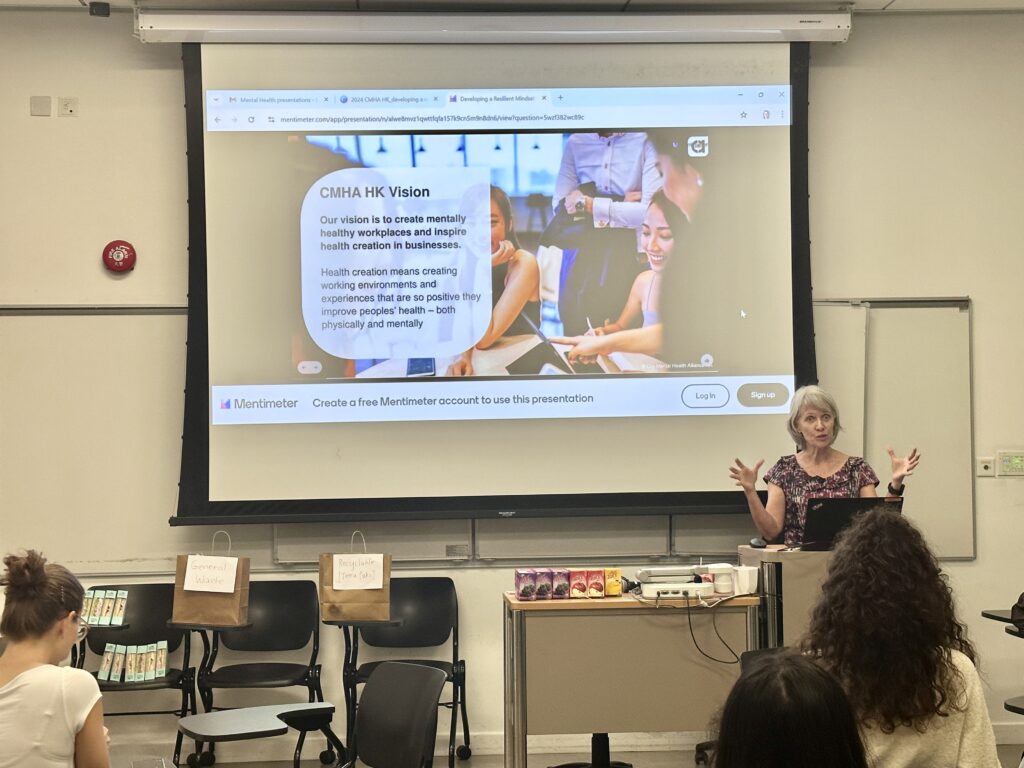
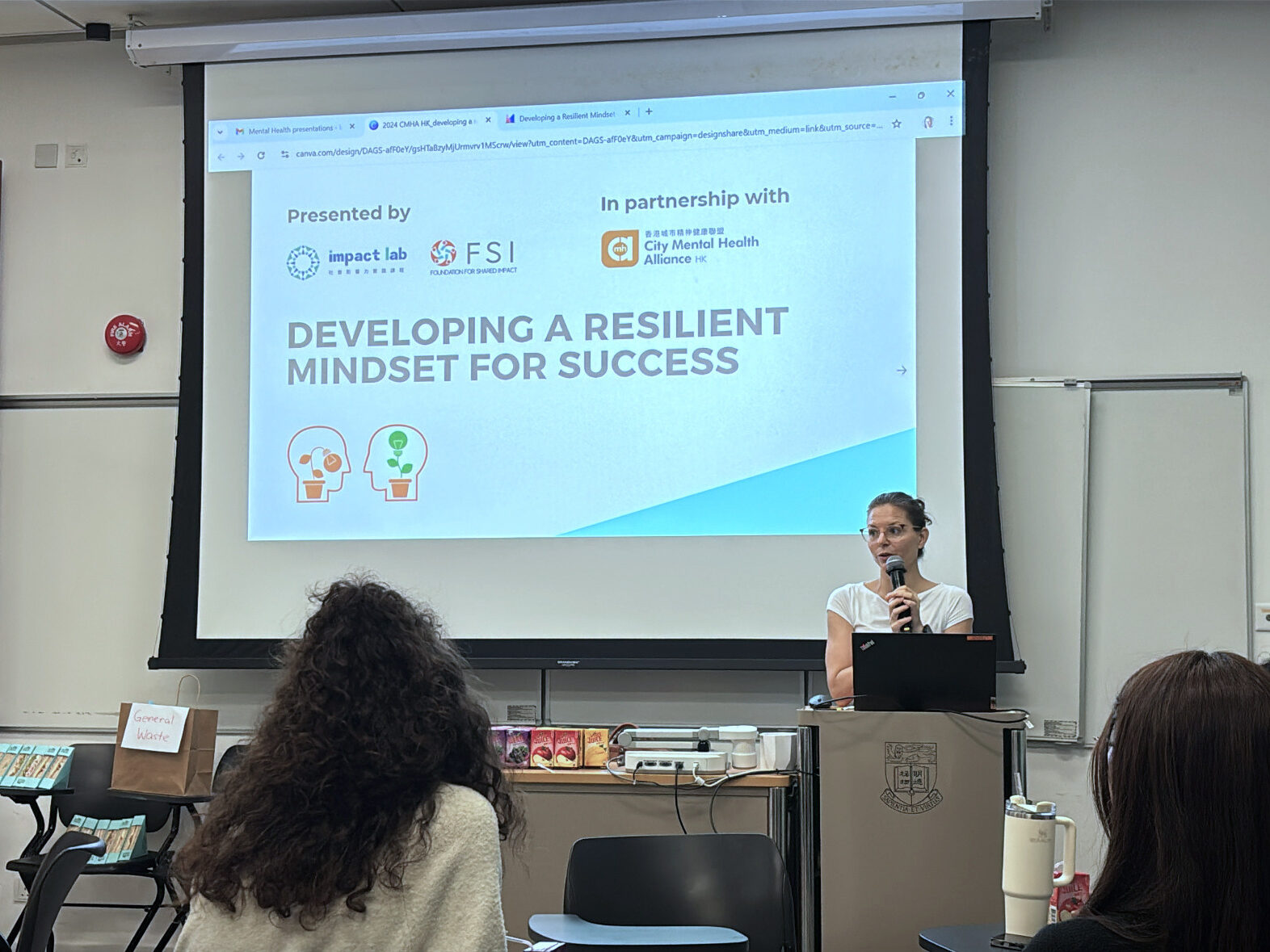
Where Stress Comes From
To begin the workshop, Hilleke asked the participants to input on Mentimeter the words that came to mind when they thought about mental health.
“Five years ago, the words were very negative,” said Hilleke when looking at the word cloud on the screen. “Most of those you’ve written today are positive: ‘confidence’, ‘therapists’, ‘relaxing’. I think that’s a really lovely thing for someone like me who works in this field.”
However, the word with the highest appearance was still “stress”, which was the main topic of the day.
“Sometimes, it’s the stress and how you deal with it that teaches you things and makes you realize you can do things. But if you let stress build up too much, you can be less able to deal with the next thing that comes along,” said Hilleke about the spectrum ranging from “good mental health” to “mental ill-health”, with “coping” and “in need of support” in between.
Hilleke’s next question for participants was: “What stressors have had a negative impact on you over the last two months?” The responses were mainly academic and career concerns, family issues and other interpersonal relationships, and managing expectations.
“It’s interesting that many of you mention family, friends, and relationships. You’re at the age where you establish relationships, so it’s good to see that you’re valuing these things in life. It reflects the stage of life you’re in, and that you’ve got full lives that are full of people,” Hilleke noted.
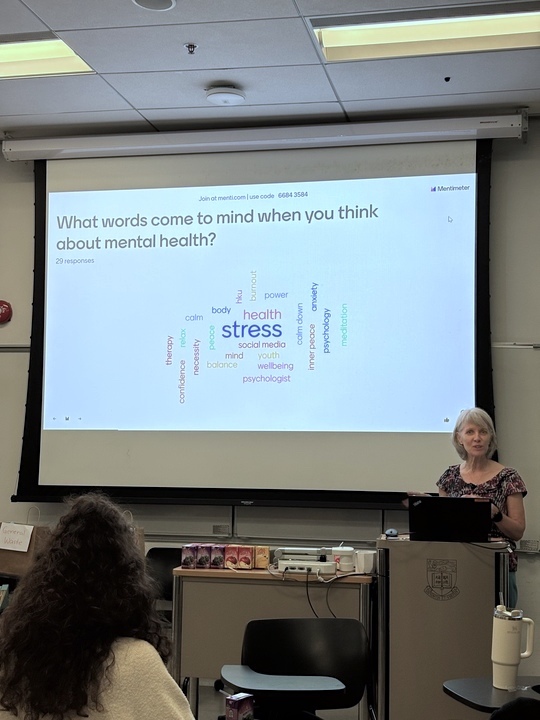
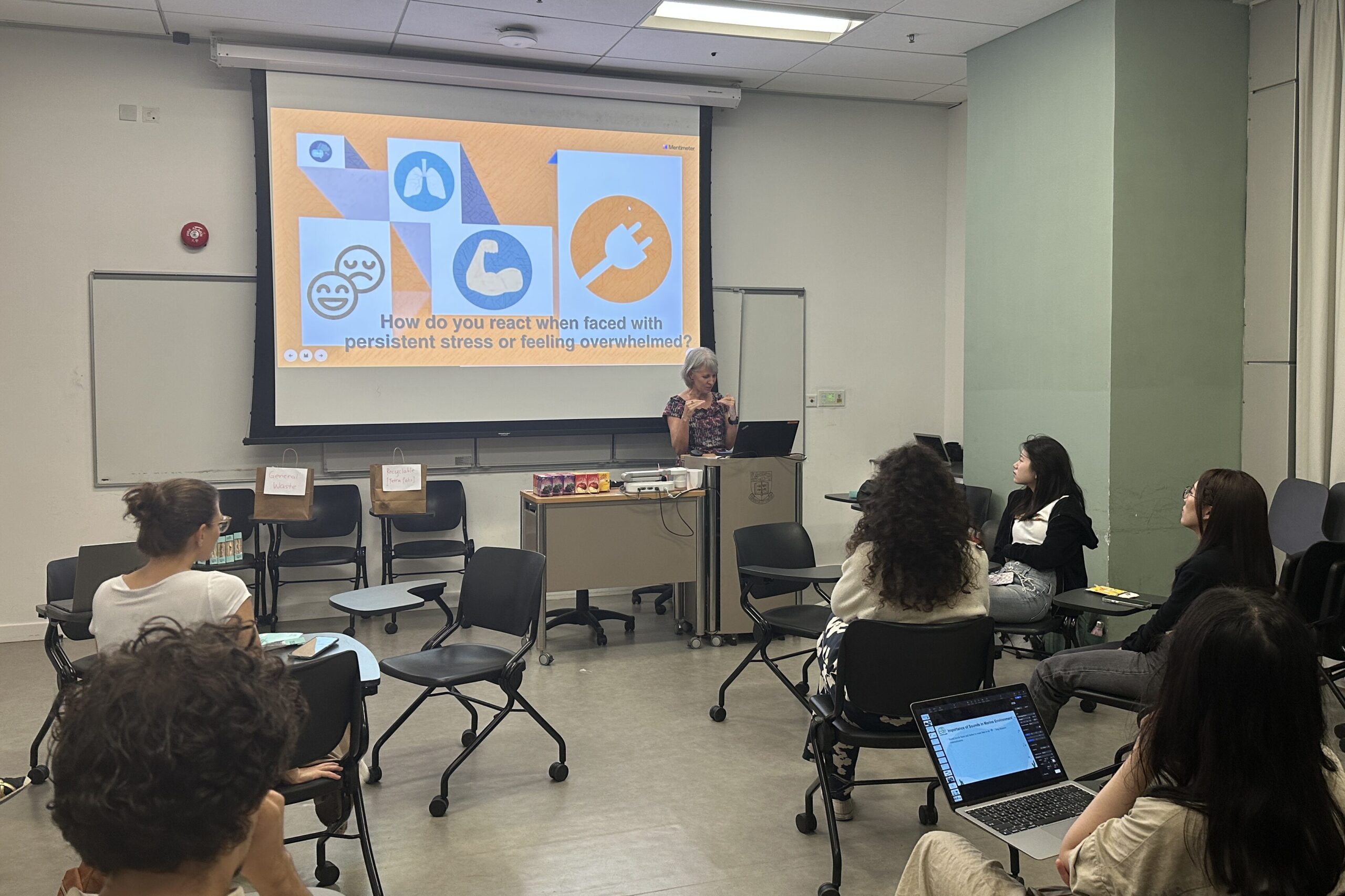
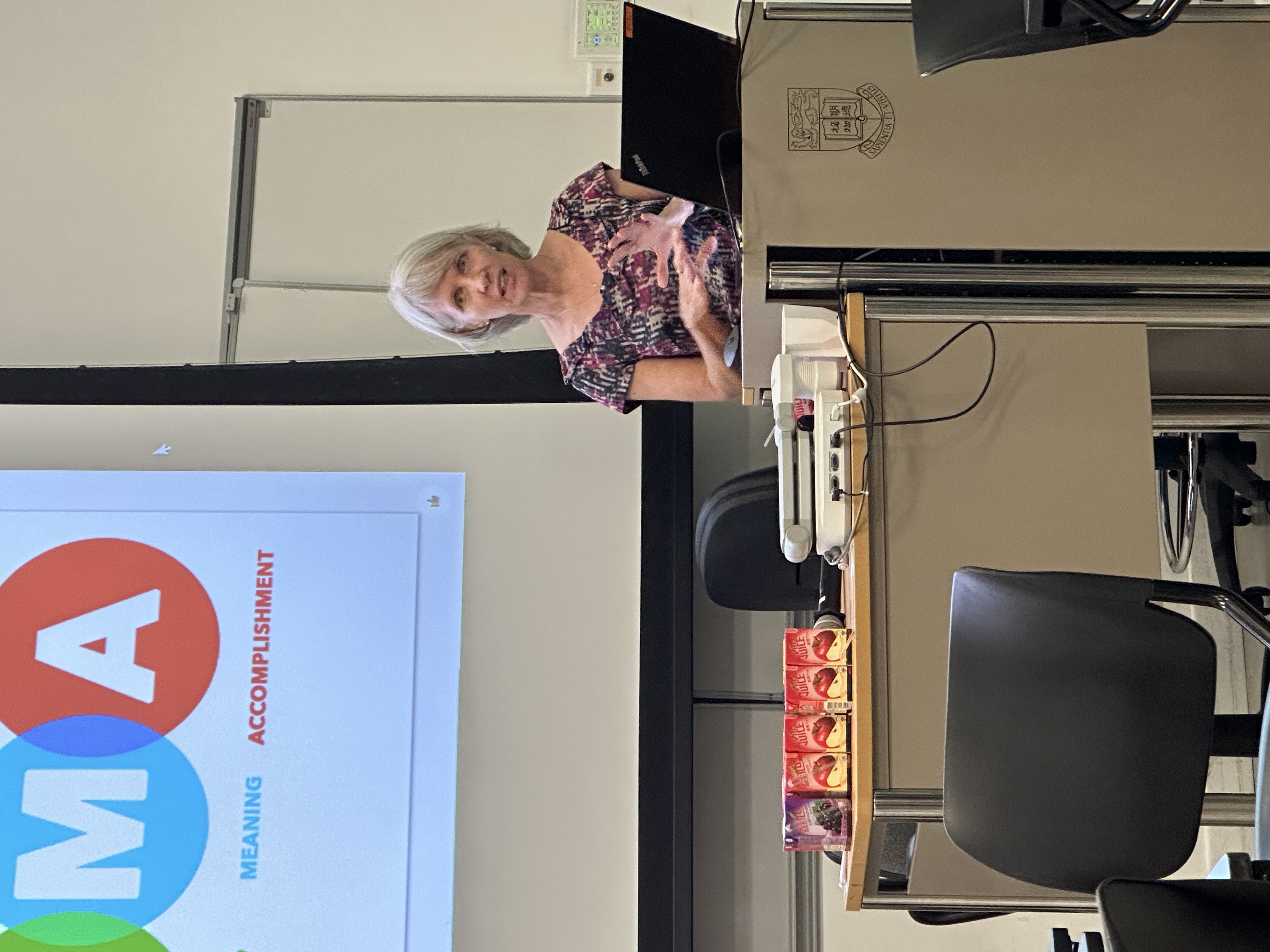
Sharing Personal Experiences
The workshop was interactive, and participants had many chances to share their personal experiences with stress. Sharon Feng, a final-year student working with Migrasia, shared, “When I’m stressed, I make a schedule and list out what I need to do. Seeing the list gives me a sense of control. I also talk to people I trust, like my parents, about the tasks I struggle with. After a detailed conversation with them, I feel much better.”
Kathleen Francisca Liem, a student working with Foundation for Shared Impact, added, “My primary source of stress comes from my commitments, both extracurricular and academic. The way I deal with them is to list down all that I have to do within categories like academics or leadership roles, because sometimes I get overwhelmed.”
Hilleke also shared her own struggles: “My biggest source of stress recently has been juggling people’s expectations and demands while trying not to take it personally. I try to see it from their perspective rather than just throwing my hands up in the air and saying, ‘This is ridiculous!’ We’re all just trying to navigate the pressures of meeting someone’s expectations.”
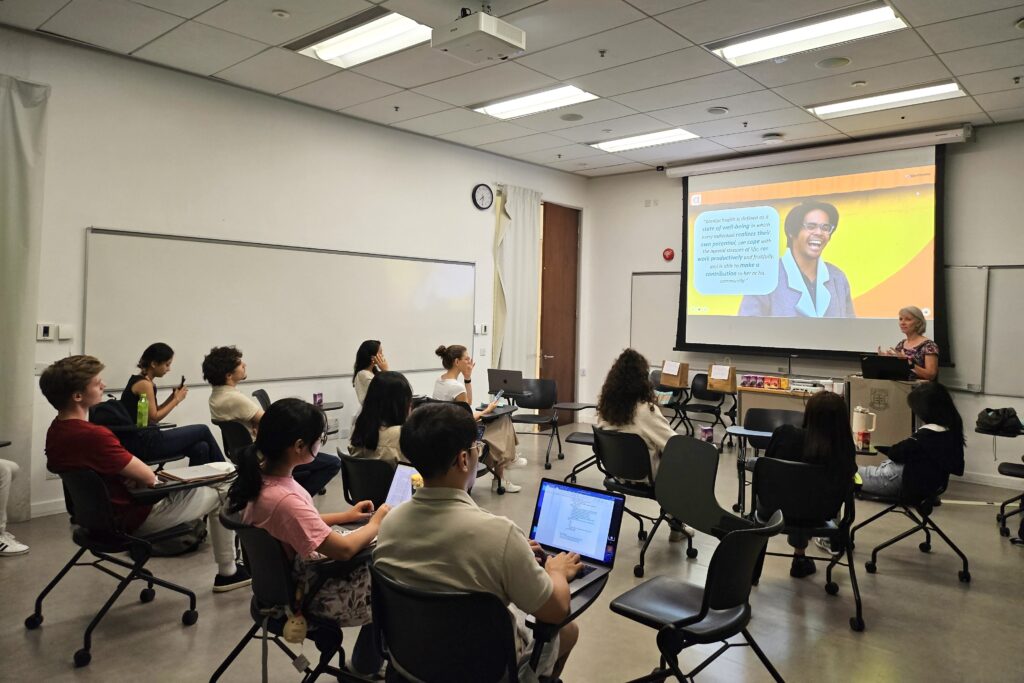
From Classroom to the Workplace
After a brief guided breathing exercise, the discussion shifted to workplaces and the imposter syndrome students may face when transitioning from school to work. Imposter syndrome is characterized by feelings of inadequacy and a lack of belonging, particularly when people step into the unknown, feeling unconfident in their abilities.
A student offered his experience from a recent internship, “The level of burden is different compared to university. For example, if I do badly on an assignment, I’m the one that fails. At work, other teammates have to take over the work I did not do or cover up my mistakes.”
To that, Hilleke offered her advice: “Stay authentic to yourself and be realistic in what you can do. Don’t try to oversell yourself. Trying to overcompensate for your imposter syndrome only undermines you more. Find what you can do and do it well, and build yourself up from there.”
But how do we do that? Hilleke said the key to supporting your mental health is to build resilience: “Keep trying, but take a break. A lot of literature around resilience shows that resting is as important as pushing. Just pushing yourself on and on won’t get you nearly as far as if you were to stop for a rest.”
She introduced the participants to the PERMA method, which stands for positive emotion, engagement, relationship, meaning, and accomplishment. PERMA is a tool to help with self-care, and the five factors can be integrated into our daily lives to support our mental health.
An Essential Workshop for Students and Supervisors
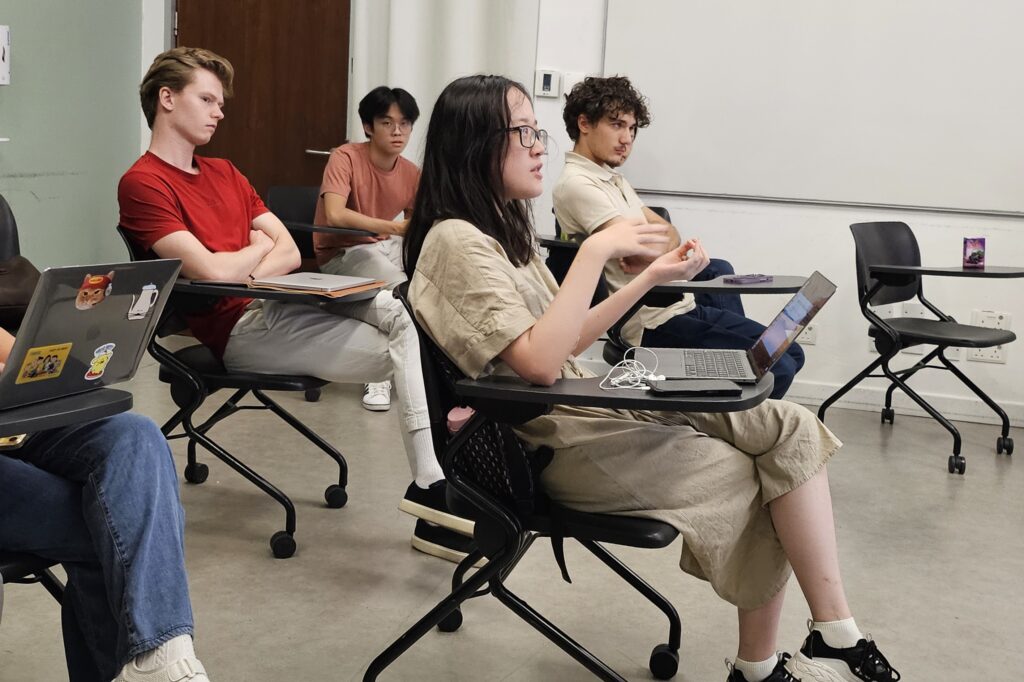
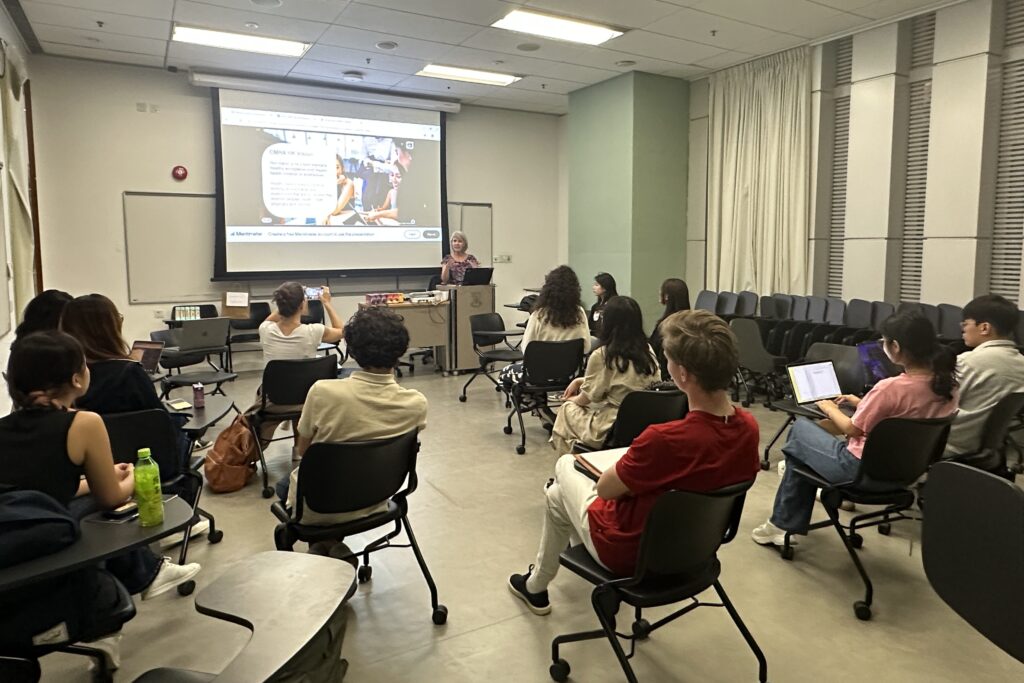
“Through today’s workshop, I learned to recognize my stress triggers,” said Kim Dong Woo, a fourth-year student, after the workshop. “By knowing the triggers and reasons for my stress, I believe I can now find solutions to solve my stress much faster. I would like to start by applying the self-care plan utilizing the PERMA examples discussed today. I want to especially focus on the positive emotions first, as I believe it is the most important aspect among PERMA.”
Sumichhya Gurung, Senior Program Manager at EmpowerU, said that as a supervisor in the Impact Lab Course, she tries to be more mindful about the stress students might deal with in their personal lives. “I will pay more attention to checking in with our interns on a casual basis. I will also create a safe space for our interns to communicate with us if they are dealing with personal challenges, and see if there are resources and professionals to whom I can direct them,” she said.
Hilleke said she loved the unexpected discussions that sparked from participants’ sharing throughout the session. “The conversations give me an idea of what resonates with people. They highlight the areas that are important to people, where I can potentially focus my attention on when I talk to people again on this topic.”
The last piece of advice she offered was this: “Everyone has to find their own thing. For me, that’s trail running and socializing with friends. Having a laugh with friends is definitely really important, but you need something physical too. You’ve got to give your body something as well. And lastly, plenty of sleep. Sleep is so important.”
If you or someone you know is struggling to cope with overwhelming negative thoughts and feelings, contact the mental health support hotline on Mind HK’s website.
*This blog post was drafted by Hyewon Lee, Communications and Marketing intern at the Foundation for Shared Impact (FSI) during the Fall 2024 semester of the Impact Lab Course.*



